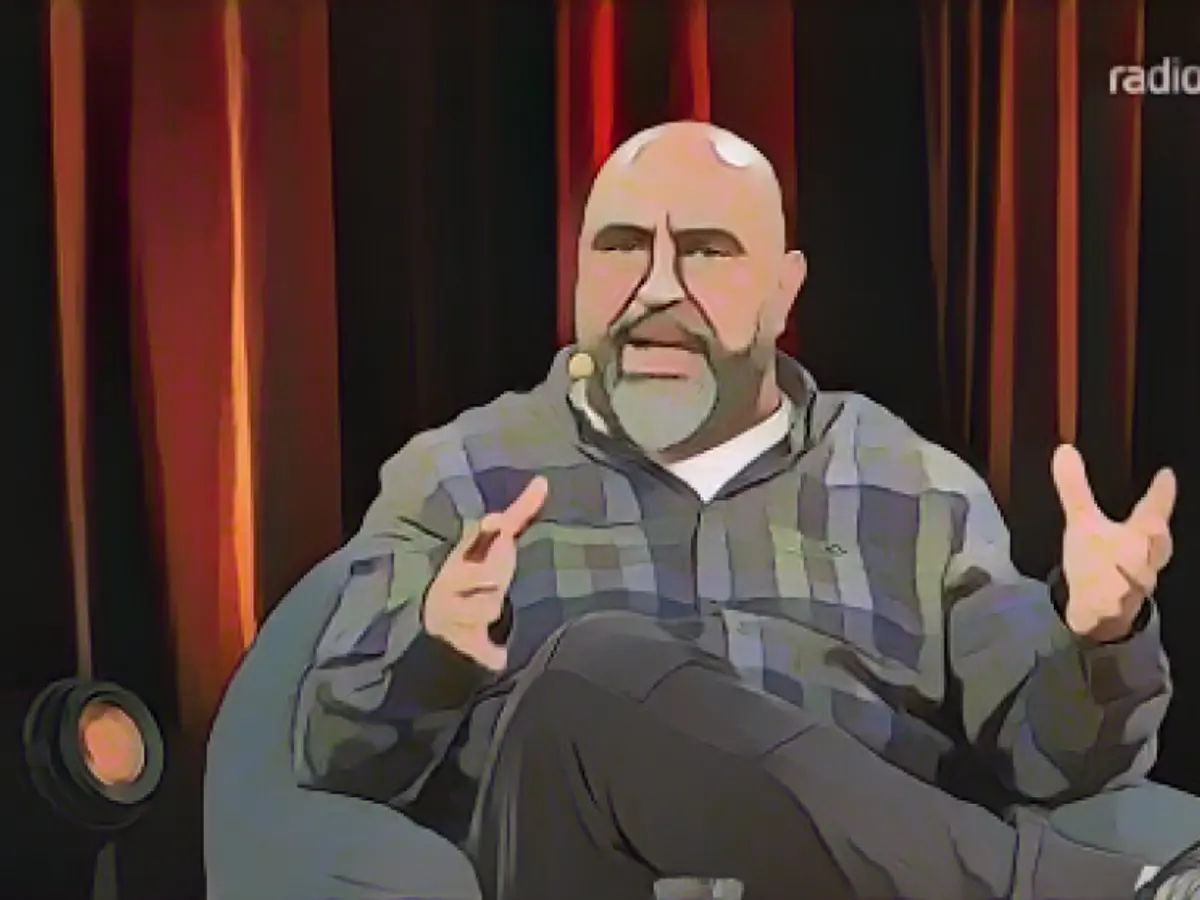Trouble at the Public Broadcasters: Somuncu and Schroeder's Controversial Podcast
Stirring the Pot with ARD
In an episode of their podcast, entertainers Florian Schroeder (44) and Serdar Somuncu (55) went straight for the jugular, tackling some of society's most controversial topics. However, their boldness seems to have landed them in hot water with ARD, the public broadcasting organization that airs their show.
Somuncu's Accusations
Somuncu, a podcaster and entertainer, took aim at several individuals he perceived to be anti-Semitic. He specifically mentioned a "PIEP," a self-proclaimed human rights activist, who openly associates with individuals making anti-Semitic statements. Somuncu stressed that this individual should not be able to claim the title "human rights activist."
Debunking Anti-Semitic Propaganda
The example that Somuncu cited was comedian Enissa Amani (41). She frequently shares anti-Israeli propaganda on her Instagram, spreading false information about an alleged Israeli attack on a hospital in Gaza. In reality, the attack never occurred, and the hospital was targeted by a Palestinian rocket explosion. Despite the quickly refuted claim, Amani's post still remains on her page, reaching over 1.2 million followers.

Chebli's Silence on Israel
Somuncu also called out SPD activist Sawsan Chebli (45) for her lack of criticism toward anti-Semitic sentiments toward Israel. Somuncu was perplexed by her failure to speak out against the situation, focusing instead on injustices faced by Muslims.
Israel, the Defender
Somuncu articulated his stance on the conflict between Israel and Islamist hatred of Jews, stating that Israel is merely defending itself. He argued that there is no need for police protection for mosques in Germany or instances of Jews attacking Muslims or demonstrating with Palestinian flags. However, he emphasized that every synagogue requires police protection due to constant attacks on Jewish people due to their religious attire.
Extreme Climate, Extreme Controversy
This controversy comes amidst the backdrop of ongoing Middle East tensions and extreme weather events. Somuncu and Schroeder's podcast has once again reignited a flame in the debate over free speech, societal norms, and cultural sensitivities in German society.
In the midst of the Middle East conflict, Serdar Somuncu, a German comedian and writer, didn't shy away from criticizing SPD activist Sawsan Chebli and comedian Enissa Amani for their perceived anti-Semitic sentiments towards Israel. Despite allegations of anti-Semitism, both Chebli and Amani maintained their statements were critiques of Israeli policies and actions, not attacks on Jewish people as a whole.
Source:
Enrichment Data:
Somuncu, a renowned German comedian and writer, got embroiled in more than one controversy, including accusations of anti-Semitism. In 2019, he went after SPD activist Sawsan Chebli and comedian Enissa Amani, perceiving their comments and actions as anti-Semitic in nature.
This incident sparked fierce reactions – some supporting Somuncu's stance, arguing that the criticism was crucial to address rising anti-Semitism. Others accused Somuncu of being overly sensitive, using the term "anti-Semitism" to silence Israeli critics.
The controversy served as a broader platform for discussing anti-Semitism in Germany and the importance of defining and upholding boundaries in public discourse. Somuncu's critics argued that his accusations conflated legitimate criticism of Israeli policies with anti-Semitic sentiments.
Enessa Amani, a frequent guest on ARD, faced allegations of spreading false information about the Israeli-Palestinian conflict on her Instagram. The controversial comic had shared a post asserting that Israel bombarded a hospital in Gaza City, killing hundreds. However, the claim proved to be false; neither the hospital was attacked nor did hundreds die.
Chebli, of Palestinian descent, maintained that her comments were merely criticisms of the Israeli government's actions, not Jews as a whole. Somuncu's critique of her silence on anti-Semitic sentiments towards Israel brought forth a much-needed discussion on the complexities of free speech, cultural nuances, and political correctness in a diverse society.
This situation underscored the intricate balance between addressing anti-Semitism while promoting free speech and fostering empathetic, balanced discussions in multicultural communities.








